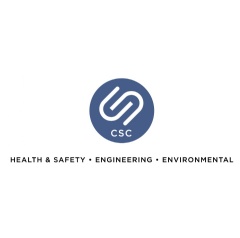Protecting Workers from Exposure to Diacetyl and Other Respiratory Hazards
Clark Seif Clark’s industrial hygiene and indoor air quality professionals identify and help to resolve potential occupational exposure risks.
Coffee shop workers have the potential for overexposure to respiratory hazards such as diacetyl and 2,3-pentanedione, particularly during or immediately following coffee bean grinding.
Last year, the National Institute for Occupational Safety and Health (NIOSH) published the science blog, Coffee Workers at Risk for Lung Disease. It discusses two alpha-diketones, diacetyl and 2,3-pentanedione, both volatile organic compounds (VOCs) that workers can be exposed to when roasting coffee or working with certain food flavorings, such as butter-flavored cooking oils. Each of these chemicals is naturally produced when coffee beans are roasted.
The NIOSH document details a case where multiple workers from a coffee processing facility were diagnosed with bronchiolitis obliterans, a form of lung disease. Bronchiolitis obliterans occurs when small airways become inflamed and scarred. The symptoms and airways obstructions range from mild to severe and do not improve when the employee goes home. Bronchiolitis obliterans is a rare disease, so it is likely some workers in coffee roasting facilities have been misdiagnosed with asthma, bronchitis, emphysema or pneumonia in the past. The loss of pulmonary function associated with severe bronchiolitis obliterans is permanent, so preventing the disease is essential.
“As of early 2017 there are over 31,000 specialty coffee shops across the United States that employ several hundred thousand workers,” said Derrick A. Denis, V.P. of Indoor Environmental Quality (IEQ) at Clark Seif Clark (CSC). “Coffee shop workers have the potential for overexposure to respiratory hazards such as diacetyl and 2,3-pentanedione, particularly during or immediately following coffee bean grinding. Without measurements, the exposure risks are unknown.”
Helping companies protect their workers from respiratory hazards are the industrial hygiene and air quality experts at Clark Seif Clark. Their professionals offer testing for diacetyl, 2,3-pentanedione, and wide range of other VOCs and airborne exposure concerns. They also provide solutions to mitigate worker exposures to airborne pollutants through training, engineering and administrative controls, and personal protective equipment (PPE). CSC has even sponsored an educational video about diacetyl and workplace exposure concerns that can be seen at: https://youtu.be/S61lA5iezn0
To learn more about this or other occupational, industrial hygiene, environmental, indoor air quality (IAQ), health and safety testing services, please visit www.csceng.com, email csc@csceng.com or call (800) 807-1118.
About Clark Seif Clark
CSC was established in 1989 to help clients in both public and private sectors address indoor air quality, occupational, environmental, and health and safety (EH&S) issues. CSC is a leading provider of these services with multiple offices along the western seaboard and southwest. The company believes in science-based protocols and has a strong background in engineering, making them the preferred environmental consultants to industrial clients, healthcare facilities, architects, schools, builders, contractors, developers and real estate professionals.
( Press Release Image: https://photos.webwire.com/prmedia/12710/209987/209987-1.jpg )
WebWireID209987
- Contact Information
- Paul Cochrane
- President
- Cochrane & Associates, LLC
- Contact via E-mail
This news content may be integrated into any legitimate news gathering and publishing effort. Linking is permitted.
News Release Distribution and Press Release Distribution Services Provided by WebWire.

